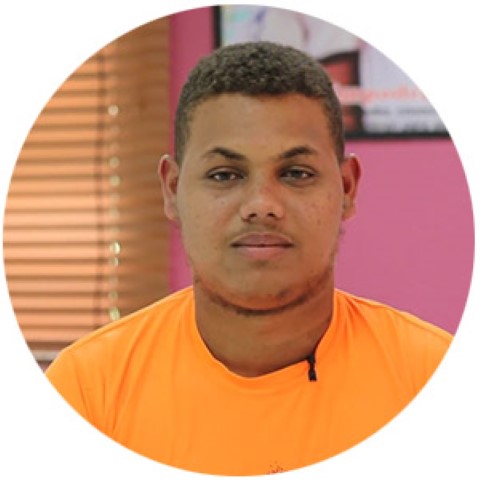- Thought Leadership

.
Half of our world’s population does not receive basic health services. Don’t we all — including those born into poverty — deserve the chance to be healthy?
Through my work at Children International, I’ve witnessed disadvantaged youth in our program become inspiring leaders of change working within civil society to advocate for access to health care services. The result is powerful, and fitting to share as we approach World Health Day on April 7 and its theme of universal health coverage.
Each Children International location around the world has a Youth Council, a group of young people elected by their peers to lead and improve life in their communities. We help make their goals possible with annual grants called Youth Empowerment Funds. The program is part of our holistic, long-term approach to help kids find a path out of poverty.

Enmanuel, youth leader in the Dominican Republic.
Enmanuel, age 18, is a youth leader in the Dominican Republic who took action to help ensure his community had access to health services. Enmanuel wrote a proposal, mobilized his peers and led efforts to secure funding for essential medical equipment his local government health clinic didn’t have. His efforts resulted in new blood pressure monitors and nebulizers (which provide breathing treatments for respiratory issues).
Enmanuel, in partnership with Children International, didn’t stop at the equipment donations. That effort inspired a partnership with CARE Malawi, developers of an evaluation tool called the Community Score Card that monitors and enables feedback on the quality and availability of health care. The tool brings together health care providers and community members to identify, prioritize and provide feedback on issues. Participants then create an action plan for improvement — seeking joint solutions and demonstrating social accountability at its best.
Enmanuel’s efforts bring to light what’s possible when young people feel empowered to take charge of their futures. During one Community Score Card meeting about medicines not being accessible, the national health service coordinator said she would “do them a favor” and see about providing medicine (despite this region of the Dominican Republic having universal health coverage). Enmanuel stood up, eloquently declaring the community wasn’t asking for a favor; rather, they were holding government accountable for providing the most basic social services. The community’s local government pharmacy has been stocked ever since!
Youth become agents of change in their communities.
The end result is important. In this case, it’s increased access to health care. Just as critical is the process of developing and strengthening our youth’s life skills and sense of social responsibility. Through the process, they become agents of change in their communities. When youth break the cycle of poverty, and stand proud to share their voices, others follow suit. And, good multiplies in the world. That’s powerful.
Most of the children who enroll in our Children International programs can’t picture a better life. Lack of opportunities, scarce finances and defeated spirits are what they see and what they know.
By participating in programs at Children International, Enmanuel received an education and access to health care. He also learned to solve problems, adopt healthy habits, think critically, hold his government accountable, work as part of a team and lead projects. Most importantly, he learned to envision a healthy and positive future. Enmanuel found his voice and confidence, and shared to help others. He is one example of the CI young people making the world better. In 2018, our youth completed 700 community service projects.
Youth can bring vibrancy, energy and new ideas to some our most challenging global social problems, including health care. We need our young people to create change in our communities and in the world. It’s up to us to give them a platform.
.

According to the World Health Organization (WHO), which created World Health Day in 1950, about 100 million people each year face out-of-pocket medical expenses that push them into poverty. Unsafe and low-quality health care also costs the world trillions of dollars every year.
We must do more to improve the quality and safety of health services globally. Accessible universal health coverage involves medical staff, communities (including youth leaders) and policy makers working together, especially in poverty-stricken communities.
I’m proud of the work we do at Children International to not only provide on-site health care clinics and related programing for the youth we serve, but also how we’re beginning to partner with community health clinics so families, and entire communities, can receive the care they deserve.
Along the way, we’re seeing youth, like Enmanuel, blossom into community leaders and advocates. This creates a ripple effect that positively affects the world for generations to come. Working together, we can create real and lasting change.
Comments
You must be logged in to comment. If you have an account, click here to log in.